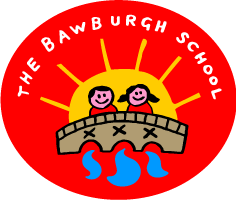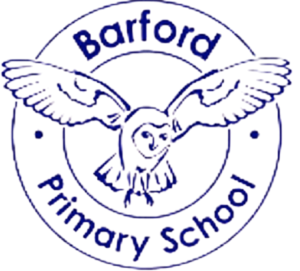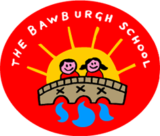The Bawburgh School
‘ABOVE AND BEYOND FOR ALL’
VALUES
Collaboration
Respect
Resilience
Curiosity
AIMS
At The Bawburgh School we will create a learning experience that goes Above and Beyond to enable all children to exceed. We will nurture children’s curiosity and use this to create fun, safe and exciting learning opportunities. We will develop children’s resilience, so they are able to learn from their mistakes and thrive. At The Bawburgh School we pride ourselves on our welcoming and inclusive community, where children learn how to collaborate effectively with adults and their peers. The Bawburgh community has respect at its heart and will provide children with a firm foundation for their academic journey.
Curriculum Drivers
Our curriculum is underlined by key themes which we will call our ‘drivers’. These determine the direction and development of the work we undertake in all areas of school life, ensuring that we provide a curriculum that is enriched, ambitious and personalised, to meet the needs of all our pupils.
Based on the needs of our children, we have identified the keys areas that will act as the drivers for our curriculum.
Global Citizens – Children at The Bawburgh school will grow up with a secure understanding of the local community, our national context and the wider world. Through a growing appreciation of different cultures and traditions, we want our children to develop respect; we want them to embrace and celebrate diversity and know what it means to be a good citizen and contribute to the community.
Respectful Communicators – Our curriculum aims to support children to acquire a wide vocabulary, good listening skills, high levels of literacy and be confident readers and writers. The design of our curriculum supports our children to be able to communicate and collaborate in a variety of ways. Children will be given opportunities to offer their opinions and reason articulately, whilst being able to debate a topic respectfully. A broad vocabulary is essential to aid both understanding and self-expression, therefore our curriculum is language rich, involves the use of high-quality texts and provides opportunities to practise new vocabulary.
Active Learners – The Bawburgh curriculum is carefully planned and sequenced to provide opportunities for children to have a wide variety of learning experiences. It enables pupils to develop as independent learners as well as being able to work collaboratively. We aim for our children to have a thirst for knowledge and to have the resilience necessary to tackle challenges and problems. Our pupils will be supported to take risks and to learn from their mistakes. Our curriculum enables children to develop into active learners who are positively engaged in the acquisition of skills and knowledge and are curious.
Aspirational – Our curriculum will support our children to be the best they can possibly be and to challenge themselves as learners. The development of aspiration encourages children to produce work of high quality, take pride in themselves and be resilient when faced with challenges. We strive for our children to be clear about what they are aiming for and to be challenged to achieve highly by raising their expectations. By offering a broad and balanced curriculum at The Bawburgh School, children are given a range of opportunities to experience the arts and sciences, culture, significant people and the world of employment; these serve to stimulate curiosity, imagination and ambition.
Curriculum Delivery
‘The school has designed a curriculum that is broad, engaging and ambitious for all. This starts from the early years. The knowledge and skills pupils need to learn are carefully sequenced. Teachers explain learning well and use resources to support pupils’ understanding.’ Ofsted September 2024
At The Bawburgh School, we are committed to providing our pupils with the highest quality education which aligns with our core curriculum drivers: Global Citizens, Respectful Communications, Active Learners and Aspirational. To support us with achieving this, we have implemented the CUSP curriculum model for: EYFS, History, Geography and Science. Our decision to adopt the CUSP curriculum is grounded in extensive educational research and aligns with our school’s values and goals.
Evidence Informed Principles
The CUSP curriculum is rooted in research around Cognitive load theory (Sweller’s), Principles of Instruction (Rosenshine’s) and Generative Learning Practice (Fiorella and Mayer’s. The curriculum is deliberately sequenced to activate prior learning and make connections, build on skills and deepen knowledge and understanding. Our curriculum is designed to reduce cognitive overload by carefully structuring the learning process, making it easier for pupils to manage and retain new information.
Lesson Structure KS1/KS2
The following lesson structure is implemented in KS1/KS2, to scaffold pupils towards success across the curriculum.

CUSP EYFS
CUSP Early Foundations supports children’s development across all 7 areas of learning. The approach is presented in three parts:
- Foundational knowledge: what pupils should know and be able to do throughout the EYFS and how this will support their development and prepare them for Key Stage 1. This is often delivered through discrete teaching following a structured story time, also known as ‘Story explorers’, and links closely to the story of the week.
- Opportunities and experiences: how this foundational knowledge can be learnt through play and through guided activities that will allow pupils to explore, experiment with and think hard about new and important concepts.
- Structured Story Time (Story Explorers): core texts that will introduce key language, ideas and themes that pupils will need to access the foundational knowledge, built into a framework that uses all that we know about effective literacy instruction.
At The Bawburgh School, we follow the statutory requirements of the new National Curriculum for Primary Schools introduced in September 2014. Our Reception children follow the statutory requirements of the Early Years Foundation Stage Framework.
To access copies of the documents, click on the links below:


